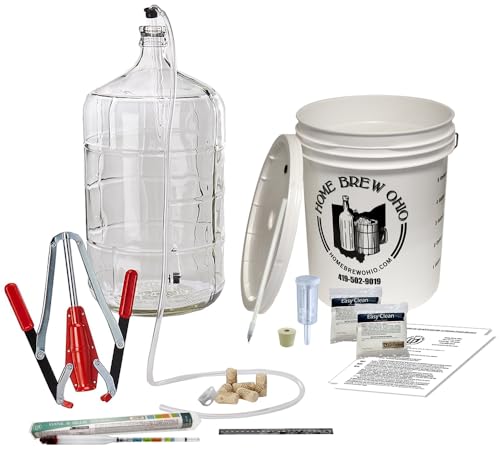winemanden
Senior Member
Whey protein gel breaks down alcohol in the body
Will it soon be possible to drink wine without worrying?
2 min. read
View original
Researchers at ETH Zurich have developed a gel made from whey protein fibres that can break down alcohol before it enters the bloodstream. The alcohol is converted into acetic acid in the stomach with the help of iron atoms. In experiments with mice, the gel was able to reduce blood alcohol levels by up to fifty per cent. The article was published in the scientific journal "Nature Nanotechnology".
"The gel shifts the breakdown of alcohol from the liver to the digestive tract. In contrast to alcohol metabolism in the liver, this does not produce the harmful intermediate product acetaldehyde," explains Raffaele Mezzenga, Professor of Food and Soft Materials at ETH Zurich. The toxic acetaldehyde is responsible for many health problems caused by excessive alcohol consumption.
If the gel were to be authorised for human consumption, it could be taken before or during alcohol consumption. It prevents the intoxicating effect and the formation of harmful acetaldehyde. According to the scientists, however, the gel is only effective as long as there is still alcohol in the gastrointestinal tract. If there is already alcohol in the blood, it can no longer help. "The gel could be particularly interesting for people who don't want to give up the pleasure of alcohol, but don't want to burden their body and are not interested in the effects of alcohol," continues Mezzenga.
Ordinary whey proteins were used to produce the gel. These were boiled for several hours to form long, thin fibres. By adding salt and water, the fibres cross-link to form a gel. Several catalysts are also required to break down the alcohol. Firstly, the researchers used individual iron atoms, which they distributed evenly over the surface of the long protein fibres.
"We virtually immersed the fibres in an iron bath so that they could react effectively with the alcohol and convert it into acetic acid," says ETH researcher and first author of the study Jiaqi Su. Tiny amounts of hydrogen peroxide are needed to trigger this reaction in the stomach. These are generated by an upstream reaction between glucose and gold nanoparticles. The scientists opted for gold as a catalyst for hydrogen peroxide, as the precious metal is not digested and is therefore effective for longer in the digestive tract. They packed all these substances - iron, glucose and gold - into the gel. This enabled a multi-stage cascade of enzymatic reactions in which alcohol is converted into acetic acid at the end.
Although no clinical studies have yet been carried out on humans, the inventors of the gel are confident: they have already applied for a patent.
Will it soon be possible to drink wine without worrying?
2 min. read
View original
Researchers at ETH Zurich have developed a gel made from whey protein fibres that can break down alcohol before it enters the bloodstream. The alcohol is converted into acetic acid in the stomach with the help of iron atoms. In experiments with mice, the gel was able to reduce blood alcohol levels by up to fifty per cent. The article was published in the scientific journal "Nature Nanotechnology".
"The gel shifts the breakdown of alcohol from the liver to the digestive tract. In contrast to alcohol metabolism in the liver, this does not produce the harmful intermediate product acetaldehyde," explains Raffaele Mezzenga, Professor of Food and Soft Materials at ETH Zurich. The toxic acetaldehyde is responsible for many health problems caused by excessive alcohol consumption.
If the gel were to be authorised for human consumption, it could be taken before or during alcohol consumption. It prevents the intoxicating effect and the formation of harmful acetaldehyde. According to the scientists, however, the gel is only effective as long as there is still alcohol in the gastrointestinal tract. If there is already alcohol in the blood, it can no longer help. "The gel could be particularly interesting for people who don't want to give up the pleasure of alcohol, but don't want to burden their body and are not interested in the effects of alcohol," continues Mezzenga.
Ordinary whey proteins were used to produce the gel. These were boiled for several hours to form long, thin fibres. By adding salt and water, the fibres cross-link to form a gel. Several catalysts are also required to break down the alcohol. Firstly, the researchers used individual iron atoms, which they distributed evenly over the surface of the long protein fibres.
"We virtually immersed the fibres in an iron bath so that they could react effectively with the alcohol and convert it into acetic acid," says ETH researcher and first author of the study Jiaqi Su. Tiny amounts of hydrogen peroxide are needed to trigger this reaction in the stomach. These are generated by an upstream reaction between glucose and gold nanoparticles. The scientists opted for gold as a catalyst for hydrogen peroxide, as the precious metal is not digested and is therefore effective for longer in the digestive tract. They packed all these substances - iron, glucose and gold - into the gel. This enabled a multi-stage cascade of enzymatic reactions in which alcohol is converted into acetic acid at the end.
Although no clinical studies have yet been carried out on humans, the inventors of the gel are confident: they have already applied for a patent.



















































